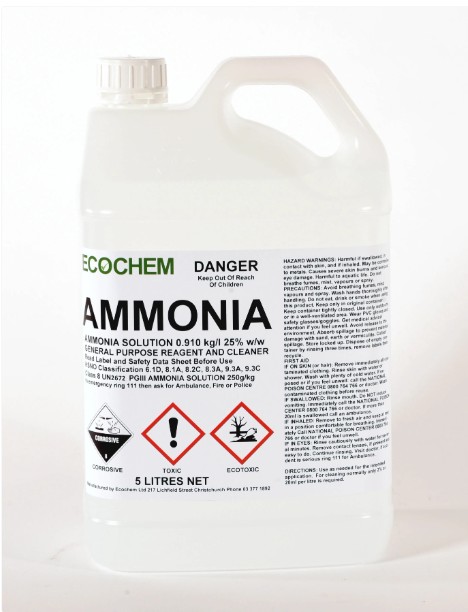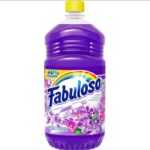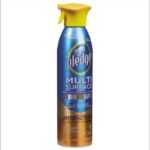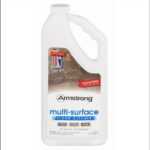Ammonia For Carpet Cleaner, a versatile household cleaner, has gained attention for its potential use in carpet cleaning. However, it’s crucial to understand its properties and limitations before employing it on your carpets.
Benefits of Ammonia for Carpet Cleaning
Ammonia possesses several advantages as a carpet cleaner:
- Effective Stain Removal: Ammonia’s alkaline nature helps break down acidic stains, such as those caused by food or beverages.
- Odor Elimination: Ammonia’s pungent odor neutralizes unpleasant smells, leaving carpets smelling fresh.
- Disinfection: Ammonia has antibacterial and antiviral properties, making it effective in disinfecting carpets.
Limitations of Ammonia for Carpet Cleaning
Despite its benefits, ammonia also has some drawbacks:
- Strong Odor: Ammonia’s pungent odor can be overwhelming and linger in the air for an extended period.
- Potential Damage to Carpets: Undiluted ammonia can damage certain types of carpets, especially those made from delicate fibers like wool or silk.
- Respiratory Irritation: Inhaling concentrated ammonia fumes can cause respiratory irritation.
How to Use Ammonia for Carpet Cleaning
To safely and effectively use ammonia for carpet cleaning, follow these steps:
- Dilute Ammonia: Mix 1 cup of household ammonia with 1 gallon of warm water.
- Test on an Inconspicuous Area: Apply the solution to a small, hidden area of the carpet to ensure it does not cause any damage.
- Apply to Stains: Use a clean cloth or sponge to apply the ammonia solution to the stained area. Blot gently to avoid spreading the stain.
- Rinse Thoroughly: After treating the stain, rinse the area thoroughly with clean water to remove any residual ammonia.
- Ventilate the Area: Open windows and doors to ventilate the area and dissipate the ammonia odor.
Alternatives to Ammonia for Carpet Cleaning
If you prefer to avoid using ammonia, consider these alternatives:
- Vinegar: White vinegar is a natural acid that can effectively remove stains and odors.
- Baking Soda: Baking soda absorbs odors and can be used to freshen carpets.
- Commercial Carpet Cleaners: There are numerous commercial carpet cleaners available that are specifically designed for use on carpets.
Conclusion
Ammonia can be an effective carpet cleaner when used properly. However, it’s essential to dilute it adequately, test it on an inconspicuous area, and ventilate the area thoroughly after use. If you have concerns about using ammonia, consider alternative cleaning methods or consult a professional carpet cleaner.

Ammonia Solution For Carpet Cleaning
Ammonia, a versatile household cleaner, has gained attention for its potential use in carpet cleaning. However, it’s crucial to understand its properties and application methods to ensure effective and safe cleaning.
Benefits of Ammonia for Carpet Cleaning
Ammonia possesses several advantages as a carpet cleaner:
- Deodorizing: Ammonia’s pungent odor neutralizes unpleasant smells, leaving carpets smelling fresh.
- Stain Removal: It can effectively remove stains caused by acidic substances, such as coffee or wine.
- Disinfecting: Ammonia has antibacterial and antiviral properties, making it suitable for disinfecting carpets.
How to Use Ammonia for Carpet Cleaning
To use ammonia for carpet cleaning, follow these steps:
- Test a Small Area: Always test the solution on an inconspicuous area of the carpet to ensure it does not damage the fibers.
- Prepare the Solution: Mix 1 cup of ammonia with 1 gallon of warm water.
- Apply the Solution: Apply the solution to the carpet using a spray bottle or a sponge.
- Blot and Rinse: Blot the carpet with a clean cloth to absorb the solution. Rinse the carpet thoroughly with clean water to remove any remaining ammonia.
- Ventilate: Open windows and doors to ventilate the area and dissipate the ammonia odor.
Cautionary Notes
While ammonia can be effective for carpet cleaning, it’s important to exercise caution:
- Strong Odor: Ammonia has a strong odor that can be irritating to some people. Ensure proper ventilation during and after cleaning.
- Potential Damage: Ammonia can damage certain carpet fibers, such as wool or silk. Always test the solution before applying it to the entire carpet.
- Safety Precautions: Wear gloves and eye protection when handling ammonia. Avoid contact with skin and eyes.
Alternatives to Ammonia
If ammonia is not suitable for your carpet, consider these alternatives:
- Vinegar: Vinegar is a natural deodorizer and stain remover. Mix 1 cup of vinegar with 1 gallon of water for a cleaning solution.
- Baking Soda: Baking soda absorbs odors and can be used as a dry cleaner. Sprinkle baking soda on the carpet, let it sit for several hours, and vacuum it up.
Conclusion
Ammonia can be an effective carpet cleaner when used properly. However, it’s essential to test the solution, exercise caution, and consider alternatives if necessary. By following these guidelines, you can achieve clean and fresh carpets without compromising their integrity.
Is Ammonia Good For Cleaning Carpets
Ammonia, a common household cleaner, has gained attention as a potential solution for carpet cleaning. However, its effectiveness and safety for this purpose warrant careful consideration.
Effectiveness of Ammonia for Carpet Cleaning
Ammonia possesses degreasing and stain-removing properties, making it effective in removing certain types of stains, such as those caused by food or beverages. It can also help neutralize odors and brighten carpets. However, it is important to note that ammonia is not a substitute for professional carpet cleaning methods and may not be suitable for all types of stains or carpets. Anabec Mold Cleaner: Step-by-Step Instructions and Tips
Safety Considerations
While ammonia is generally safe for use on carpets, it is crucial to use it with caution. Ammonia fumes can be irritating to the eyes, nose, and throat, especially in enclosed spaces. It is essential to ensure adequate ventilation when using ammonia for carpet cleaning. Additionally, ammonia should not be mixed with bleach or other cleaning agents, as this can create toxic fumes.
How to Use Ammonia for Carpet Cleaning
To use ammonia for carpet cleaning, mix one cup of ammonia with one gallon of warm water. Test the solution on an inconspicuous area of the carpet to ensure it does not cause discoloration or damage. Apply the solution to the stained area using a clean cloth or sponge. Blot the stain gently and rinse with clean water.
Alternatives to Ammonia for Carpet Cleaning
If you prefer to avoid using ammonia, there are several alternative cleaning solutions available. Vinegar, baking soda, and dish soap are all effective and safe options for carpet cleaning. You can also purchase commercial carpet cleaning solutions that are specifically designed for use with Bissell or other carpet cleaning machines.
Conclusion
Ammonia can be an effective and affordable solution for removing certain types of stains from carpets. However, it is essential to use it with caution and ensure adequate ventilation. If you have concerns about the safety or effectiveness of ammonia, consider using alternative cleaning solutions or consulting a professional carpet cleaner.
Ammonia For Carpet Cleaning
Ammonia for Carpet Cleaning: A Comprehensive Guide
Ammonia, a versatile household cleaner, has gained attention for its potential use in carpet cleaning. However, it’s crucial to understand its properties and limitations before employing it on your carpets.
Benefits of Ammonia for Carpet Cleaning
Ammonia possesses several advantages as a carpet cleaner:
- Effective Stain Removal: Ammonia’s alkaline nature helps break down acidic stains, such as those caused by food or beverages.
- Odor Elimination: Ammonia’s pungent odor neutralizes unpleasant smells, leaving carpets smelling fresh.
- Disinfection: Ammonia has antibacterial and antiviral properties, making it effective in disinfecting carpets.
Limitations of Ammonia for Carpet Cleaning
Despite its benefits, ammonia also has some drawbacks:
- Strong Odor: Ammonia’s pungent odor can be overwhelming and linger in the air for an extended period.
- Potential Damage to Carpets: High concentrations of ammonia can damage certain types of carpets, especially those made from delicate fibers like wool or silk.
- Respiratory Irritation: Ammonia fumes can irritate the respiratory system, particularly in enclosed spaces.
How to Use Ammonia for Carpet Cleaning
To safely use ammonia for carpet cleaning, follow these steps:
- Test a Small Area: Always test ammonia on an inconspicuous area of the carpet to ensure it does not cause damage.
- Dilute Ammonia: Mix 1/2 cup of ammonia with 1 gallon of warm water.
- Apply to Carpet: Apply the ammonia solution to the stained area using a clean cloth or sponge.
- Blot and Rinse: Blot the area with a clean cloth to absorb the solution. Rinse the area thoroughly with water to remove any remaining ammonia.
- Ventilate the Area: Open windows and doors to ventilate the area and dissipate the ammonia odor.
Alternatives to Ammonia for Carpet Cleaning
If ammonia is not suitable for your carpets, consider these alternatives:
- Vinegar: Vinegar is a natural acid that can effectively remove stains and odors.
- Baking Soda: Baking soda absorbs odors and can be used to freshen carpets.
- Commercial Carpet Cleaners: There are numerous commercial carpet cleaners available that are specifically designed for different types of carpets.
Conclusion
Ammonia can be an effective carpet cleaner when used properly. However, it’s essential to consider its limitations and potential risks. If you have concerns about using ammonia, opt for alternative cleaning methods or consult a professional carpet cleaner. By following these guidelines, you can safely and effectively clean your carpets using ammonia or other suitable cleaning solutions.
Ammonia For Carpet Cleaner
Ammonia, a versatile household cleaner, has gained attention for its potential use in carpet cleaning. However, it’s crucial to understand its properties and limitations before employing it on your carpets.
Benefits of Ammonia for Carpet Cleaning
Ammonia possesses several advantages as a carpet cleaner:
- Effective Stain Removal: Ammonia’s alkaline nature helps break down acidic stains, such as those caused by food or beverages.
- Odor Elimination: Ammonia’s pungent odor neutralizes unpleasant smells, leaving carpets smelling fresh.
- Disinfection: Ammonia has antibacterial and antiviral properties, making it effective in disinfecting carpets.
Limitations of Ammonia for Carpet Cleaning
Despite its benefits, ammonia also has some drawbacks:
- Strong Odor: Ammonia’s pungent odor can be overwhelming and linger in the air for an extended period.
- Potential Damage to Carpets: High concentrations of ammonia can damage certain types of carpets, especially those made from delicate fibers like wool or silk.
- Respiratory Irritation: Ammonia fumes can irritate the respiratory system, particularly in enclosed spaces.
How to Use Ammonia for Carpet Cleaning
To safely use ammonia for carpet cleaning, follow these steps:
- Test a Small Area: Always test ammonia on an inconspicuous area of the carpet to ensure it does not cause damage.
- Dilute Ammonia: Mix 1/2 cup of ammonia with 1 gallon of warm water.
- Apply to Carpet: Apply the ammonia solution to the stained area using a clean cloth or sponge.
- Blot and Rinse: Blot the area with a clean cloth to absorb the solution. Rinse the area thoroughly with water to remove any remaining ammonia.
- Ventilate the Area: Open windows and doors to ventilate the area and dissipate the ammonia odor.
Alternatives to Ammonia for Carpet Cleaning
If you prefer to avoid using ammonia, consider these alternatives:
- Vinegar: Vinegar is a natural acid that can effectively remove stains and odors.
- Baking Soda: Baking soda absorbs odors and can help lift stains.
- Commercial Carpet Cleaners: There are numerous commercial carpet cleaners available that are specifically designed for use on carpets.
Conclusion
Ammonia can be an effective carpet cleaner when used properly. However, it’s essential to consider its limitations and potential risks. If you have concerns about using ammonia, opt for alternative cleaning methods or consult a professional carpet cleaner.
Q&A
Is ammonia good for cleaning carpets?
Yes, ammonia can be used to clean carpets. It is an effective stain remover and can help to brighten carpets.
How do I make an ammonia solution for carpet cleaning?
Mix 1/2 cup of ammonia with 1 gallon of warm water.
How do I use ammonia to clean carpets?
Apply the ammonia solution to the carpet and scrub with a brush. Rinse the carpet with clean water and vacuum.
Is ammonia safe for cleaning carpets?
Yes, ammonia is safe for cleaning carpets when used in moderation. However, it is important to test the solution on a small area of carpet first to make sure it does not damage the carpet.
What are the benefits of using ammonia to clean carpets?
Ammonia is an effective stain remover and can help to brighten carpets. It is also a relatively inexpensive cleaning solution.



